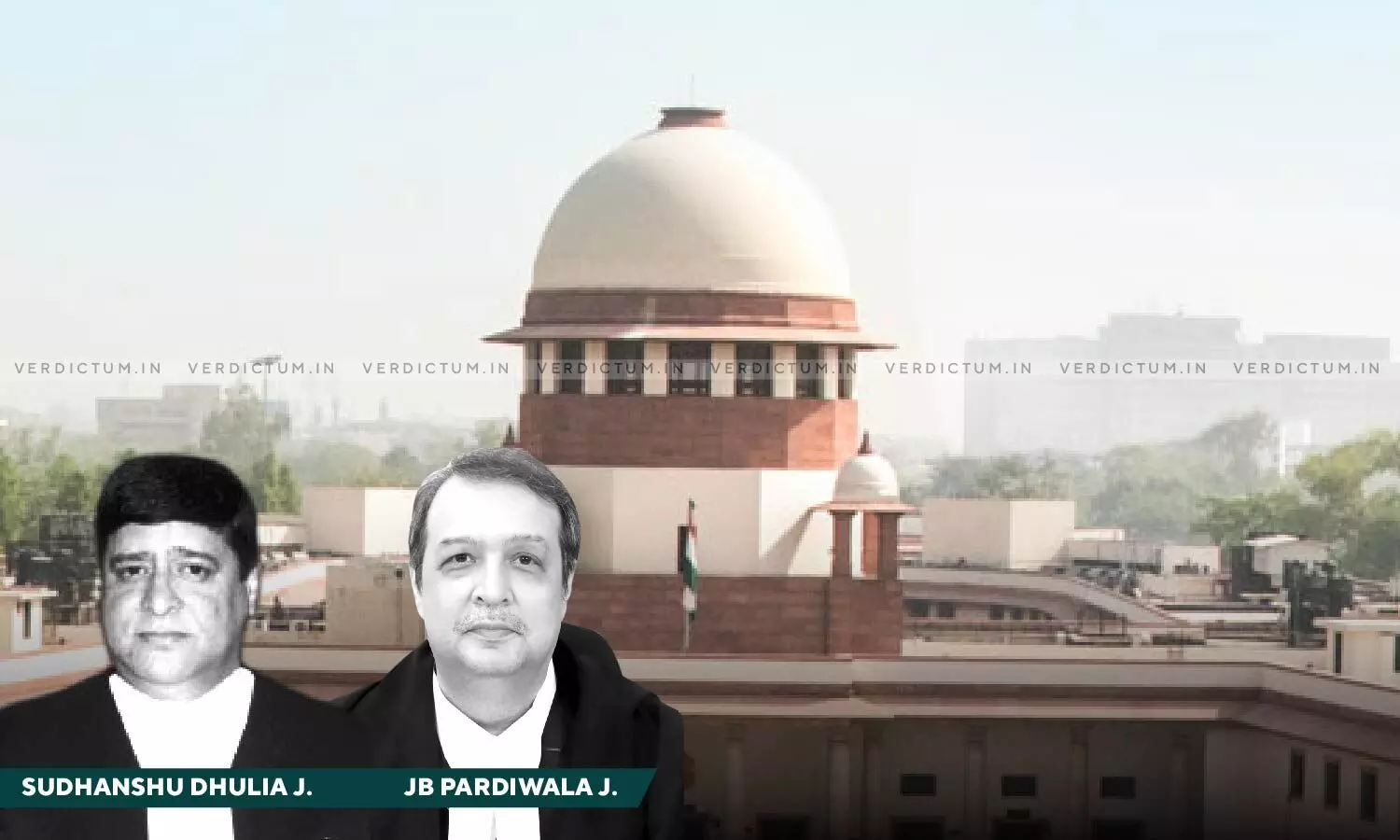
Presumption U/S 113B Evidence Act Cannot Be Raised When Demand For Dowry Is Not Established: Supreme Court
 |
|The Supreme Court, while setting aside the conviction under Section 304B of the Indian Penal Code, observed that the presumption under Section 113B of the Indian Evidence Act cannot be raised when demand for dowry has not been established.
The Court upheld the conviction against the husband accused under Section Sections 498A and 306 of the IPC while holding that the deceased wife faced cruelty and harassment at the hands of her husband which compelled her to commit suicide.
A Bench of Justice Sudhanshu Dhulia and Justice J.B. Pardiwala observed, “The trial court erred in raising a presumption under Section 113B of the Indian Evidence Act, even though the demand for dowry was not established.”
Advocate Arundhati Katju represented the appellants, while Advocate Srisatya Mohanty appeared for the respondents.
The prosecution alleged that the death of the victim was a result of continuous harassment and dowry demands made by her in-laws and husband. At the time of the incident, the deceased’s husband was not at home, and an inquest report was filed, followed by a post-mortem that confirmed suicide. No other injuries were found on her body.
Five days after the incident, the brother of the deceased filed an FIR under Sections 498A, 304B, and 306 of the IPC accusing the in-laws of harassment and dowry demands. Based on this, the trial court convicted the husband, mother-in-law, and sister-in-law. The High Court upheld this decision, though the mother-in-law passed away during the pendency of the appeal, abating the case against her.
The Supreme Court had to determine whether the evidence presented by the prosecution was sufficient to uphold the conviction under Section 304B of the IPC.
The Bench relied on its decision Rajinder Singh v. State of Punjab (2015) wherein the Court had discussed the ingredients of Section 304B of the IPC as follows:
“There are four such ingredients and they are said to be:
(a) death of a woman must have been caused by any burns or bodily injury or her death must have occurred otherwise than under normal circumstances;
(b) such death must have occurred within seven years of her marriage;
(c) soon before her death, she must have been subjected to cruelty or harassment by her husband or any relative of her husband; and
(d) such cruelty or harassment must be in connection with the demand for dowry.”
Therefore, the Court stated the prosecution was not able to prove the fourth ingredient i.e. cruelty or harassment in connection with the demand for dowry as discussed in the Rajinder Singh (supra) Case.
“It becomes clear that the deceased faced cruelty and harassment at the hands of her husband (appellantno.2) which compelled her to commit suicide. However, these witnesses did not state that such cruelty and harassment was in connection with the demand for dowry,” the Court remarked.
Consequently, the Court held, “A case of abetment of suicide under Section 306 of IPC and cruelty under Section 498A of IPC is made out against the appellant No. 2, although the offence under Section 304B is not made out and consequently, we set aside the conviction of appellant no.2 under Section 304B of IPC.”
Accordingly, the Supreme Court allowed the appeal.
Cause Title: Chabi Karmakar & Ors. v. The State Of West Bengal (Neutral Citation: 2024 INSC 665)
Appearance:
Appellants: Advocates Arundhati Katju, Shristi Borthakur, Ritika Meena, Pinki Aggarwal, and Sailesh Kumar Gupta; AOR Priya Puri
Respondents: Advocates Srisatya Mohanty and Abhijit Pattanaik; AOR Astha Sharma